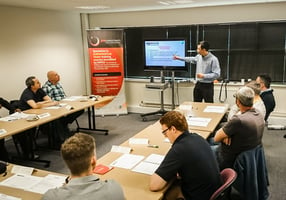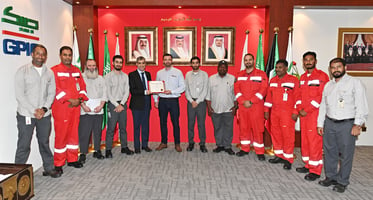In order to ensure the highest quality of education and training, accreditation bodies have decided...
Pros of E-Learning Gas Tester Training Courses
Quick and Efficient Learning
E-learning courses are often designed to allow learners to complete modules at their own pace, which can lead to a quicker and more efficient learning process. Without the need to coordinate schedules with instructors or other students, you can focus on the material that is most relevant to you and skip over content you may already be familiar with.
Easily Accessible
One of the most significant benefits of e-learning is the ease of access. As long as you have an internet connection, you can access course materials from anywhere in the world. This convenience eliminates the need for travel and allows you to learn from the comfort of your own home or office.
Remote Access
Remote access to e-learning courses means that you can continue your education even when you're on the move. Whether you're traveling for work or have a busy schedule, e-learning provides the flexibility to learn at times that suit you best.
No Limitation on Numbers
Traditional classroom-based courses often have a limited number of seats available, but e-learning courses can accommodate a much larger number of participants. This means that you're less likely to be turned away from a course due to it being full.
Cons of E-Learning Gas Tester Training Courses
Availability of Equipment
Practical skills are crucial for gas testers, and e-learning courses may not provide the hands-on experience needed to become proficient with the necessary equipment. The lack of physical equipment can be a significant drawback for those who learn best through direct interaction and practice.
No Questioning
In a traditional classroom setting, students have the opportunity to ask questions and engage in discussions with the instructor and peers. E-learning courses may not offer the same level of interaction, which can lead to misunderstandings or gaps in knowledge.
Open to Interpretation
Without the guidance of an instructor, e-learning course materials can be open to interpretation. This can be problematic in fields like gas testing, where precision and accuracy are critical. Misinterpretation of course content could lead to serious mistakes in the field.
Question Understanding
E-learning requires a high level of self-discipline and comprehension skills. If you struggle to understand questions or concepts without assistance, you may find e-learning challenging. The lack of immediate feedback can hinder your ability to grasp complex topics.
No Practical Component
Gas testing is a hands-on profession, and the absence of a practical component in e-learning courses is a significant disadvantage. Real-world experience is essential for developing the skills necessary to perform gas tests safely and effectively.
Not Tailored to Industry Sector/Site
E-learning courses are often generic and may not be tailored to the specific requirements of your industry sector or work site. This can result in a mismatch between the skills you learn and the skills you need to apply in your professional environment.
Conclusion
When considering an e-learning gas tester training course, it's important to evaluate both the pros and cons in relation to your personal learning style, professional requirements, and the specific demands of the gas testing industry. While e-learning offers convenience and flexibility, it may lack the practical, hands-on experience that is crucial for a gas tester. Before making a decision, consider the availability of equipment, the level of interaction and questioning you require, the potential for misinterpretation, the absence of a practical component, and whether the course content is tailored to your specific needs. By carefully weighing these factors, you can make an informed decision about whether an e-learning gas tester training course is the right choice for you.







